
palmerit
-
Posts
893 -
Joined
-
Last visited
Content Type
Profiles
Forums
Gallery
Events
Posts posted by palmerit
-
-
-
- Nick 843, Ryland Craze, Theodosius and 1 other
-
 4
4
-
-
-
Working on the thimbles. The plans show one line that connects both thimbles. I can’t easily see how to do that. So like the Modelkit Stuff build, I’m going to do two separate lines.
I was able to do the thimbles and add a bit of seizing. I think it’s going to be easier when the thicker seizing thread I ordered arrives. This 16/0 is tiny and hard to use. It’s hard to see (even with a magnifier), hard to tie, and it moves all over with the slightest breath.
-
In part I was delaying the continuation of my Sherbourne because I was waiting for the Modelkit Stuff Sherbourne build to go past me. He’s now well past me in that maybe he has one more video to complete the model.
His Video 19 (around time stamp 23:54) describes how to rig a couple of the blocks I hasn’t seen described in other sources. -
-
1 minute ago, RVB said:
I am sure I am not the only modeler that has multiple ships in progress!
I currently have four in progress. I'm hoping to get one or two finished relatively soon, but I'm sure they'll quickly be replaced by one or two more.
- Keith Black, Ryland Craze and RVB
-
 3
3
-
7 hours ago, Dr PR said:
Unless you know the exact way blocks were stropped on the original vessel you are modelling you are free to use whatever method appeals to you.
I'm trying to follow the plans in the Vanguard Range kit. It has several blocks illustrated that have a becket under the block while attaching to an eyebolt, requiring a loop above and below the block. It is good to know that there are several other options should I not be happy with my continued attempts to reproduce what it is in the plans.
-
This is what I bought the small (heavy) desktop vise* for (it’s less than 6 inches long but weight about 5lbs).
* https://www.haascnc.com/haas-tooling/mill_workholding/toolmakers_vise/09-0569.html#gsc.tab=0- robert952 and Keith Black
-
 2
2
-
I see that Chuck uses Gutermann Mara 220. That seems more like Veevus 3/0 or 6/0 thread. That's a good bit thicker than the Veevus 16/0 I've been used based on recommendations. Maybe I'll see if a thicker seizing thread makes it easier to use.
-
7 hours ago, JacquesCousteau said:
found Chuck Passaro's block-stropping method to be very useful
https://syrenshipmodelcompany.com/resources/Stropping Blocks (one method).pdf
This is a great resource. I've been on the Syren web site a bunch but never saw this. Thanks.
Unfortunately, it doesn't illustrate a method to do a block with becket but the other illustrations are really useful.
-
I was looking at this web page again:
https://www.modelboatyard.com/stropping.html
I suppose an alternative to making a loop at the bottom of a block to accept another line tied to it (requiring a loop above the block to attach to the eyebolt and one at the bottom for the becket) I could instead attach the way illustrated here. I don’t know it will be any easier.
-
- robert952 and Keith Black
-
 2
2
-
- robert952 and Keith Black
-
 2
2
-
First step is creating the becket around the three deheaded nails. I tighten the half hitch around the nails and add a bit of thin CA.
Then a loose half hitch to position the block in. A spot of CA after tightening.
The end result is a block with a becket. Challenge is figuring out how to attach that to an eyebolt.
- Keith Black and robert952
-
 2
2
-
I’m still struggling to figure out the best approach for rigging blocks.
Part of the challenge is translating what you might see at full scale (like what might be in the Ashley book or a photo of a rigged ship) and what might be appropriate - or “good enough” - at something like the 1:64 scale of the Ranger (and other Vanguard Models). I know at 1:24 or even 1:48 scale you might do something closer to what you might see at full scale.
I think I have a way to add a simple block like I’m showing in the first two photos. Following a bunch of other people, I can simply do a half hitch of the line on the eyebolt, adding a little CA to keep the knot tight, then do another half hitch that’s loose and position the block in the eye of that knot, cinching it tight and making sure the line is in the grove of the block, adding some CA to the half hitch under the block and to the line near where the stray ends will be cut off, cutting the lines with a sharp scalpel flush so that there are no visible stray ends. I know I could do a seizing between the block and the eyebolt but I’m still struggling with seizings and I’m not sure at 1:64 if it’s really visible without a macro lens.
It’s the several blocks on the Ranger with beckets (rope eyelets under the block) that are still stumping me. I can make the eyelets. The first step is hammering 2-3 small nails (the ones supplied for holding the first layer of planking) very close together to form the “mold” for the becket, cutting off their heads. I have some photos of two I’ve used. One just has the mold for the becket, the other also has a nearby nail to hold the block. The simplest approach is just to do a half hitch around the “mold” and add a little CA to hold the becket (rope eyelets that will go under the block). That gives a rope with a small eyelet. Then I can do a loose half hitch, position the block in the opening in that knot, and cinch tight, adding CA. That would work for a “floating” block with a becket at the bottom (if I trimmed the ends of the line), but I need to then tie the block-with-becket to an eyebolt.
I could just do a half hitch to tie the block-with-becket to the eyebolt. Maybe that will look fine with some fiddling. Is that a simple thing folks commonly do?I tried doing the seizing method I illustrated earlier from another log. Maybe it just takes more practice getting the seizings to work. I’m using Veevus 16:0 line (bought from Stockard Fly Fishing) for seizings. I got a couple tries maybe 75% of the way there, both trying to do the seizing wraps directly on the line or doing the approach Olha uses (wrapping the line around her finger and going a “pre-seizing” and then positioning the loop where it needs to go and tightening). I’m not happy with 75%. I’m sure practice can get me to more like 90%.
Are there other ways to do a block-with-becket attached to an eyebolt that I should try?
-
10 hours ago, Dr PR said:
I tried several different glues to fasten the ends of the polyester rope together.
I've read a bunch of posts about how to glue rigging lines and tried a few things.
I tried white glue and it does take a while for it to hold. Not working well with polyester thread is another problem. Thanks for that.
I might try using a little thin CA instead to set the line.
Others have recommended instead using shellac. I wonder if there's any problem using a little CA to set the line and then using a light touch of shellac after the rigged piece is done (line and block). Shellac seems a little slow to set. A combination of little CA to set the line and shellac over some rigging (including a mast or yard) seems to be what Olha is doing in her builds too.
- robert952 and Keith Black
-
 2
2
-
In Tennessee we’re almost as hot. I have a window right next to the airbrush booth but being in a 130 year old house, most of the windows do not open and even if they could I would not want the hot air coming in. For a while I painted in our cellar but then searched and found this setup.
I learned the setup I have from this YouTuber:
I found others with similar setups. The bucket is from Home Depo or Lowes (I painted my bucket and lid black). It has a snap on tight lid. You see in the video that there’s a large hole for the exhaust vent in the lid and then smaller holes in the lid to let out the exhaust air. Most of the paint fumes stay in the bucket. There’s a few inches of water in the bottom and some detergent. The exhaust hose ends a few inches above the water. I try to wash it out about once a month. The filter at the top sits over the smaller holes in the lid to catch anything that might carry out. I now have fish tank filters that I cut to size.
I use this for acrylics (Vallejo). I would not use spray enamels in the house. I hope that helps.
- Keith Black and robert952
-
 1
1
-
 1
1
-
Another option is to photocopy the plans so you can cut portions out and use something like a light coat of rubber cement to adhere them to the frame (the rubber cement let you easily peel it off). I often photocopy portions of plans to that I can cut into them and poke holes in them and spill things on them, knowing that I have the fresh plans stored in the box.
-
Here’s a useful page for illustrating a way to strop blocks with a becket:
- robert952 and Keith Black
-
 1
1
-
 1
1
-
What do you plan to apply along the top edge of the copper (where it reaches the wooden hull)? I've seen some people keep it rough, some use a piece of copper-painted rope, some use thin strips of copper. Just curious what options you've used and what you're planning. I suppose it depends on how clean the edge is.
-
For simply attaching a block to an eyebolt, Olha simply ties a knot at the bottom of the block (adding some thin CA, and later some shellac, and cutting the loose ends flush). She does add seizing between the eyebolt and the block.
I found this as another (likely more challenging approach thanks to @Thanasis. Maybe someone like this would work allowing for a becket (loop) below the block, adding seizing between the block the the loop at the bottom and a seizing between the block and the loop around the eyebolt at the top.

- Keith Black and robert952
-
 2
2
-
Olha Batchvarov has a nice demonstration of attaching a block to an eyebolt (I see now that I should have added the block to the eyebolt before adding the eyebolt to a mast or yard or bowsprit).
It’s Ep. 17 of her Lobster Smack build (yeah it says “PAINTING” but she also does masts and blocks) starting around 1:13:16.
- Keith Black and robert952
-
 2
2

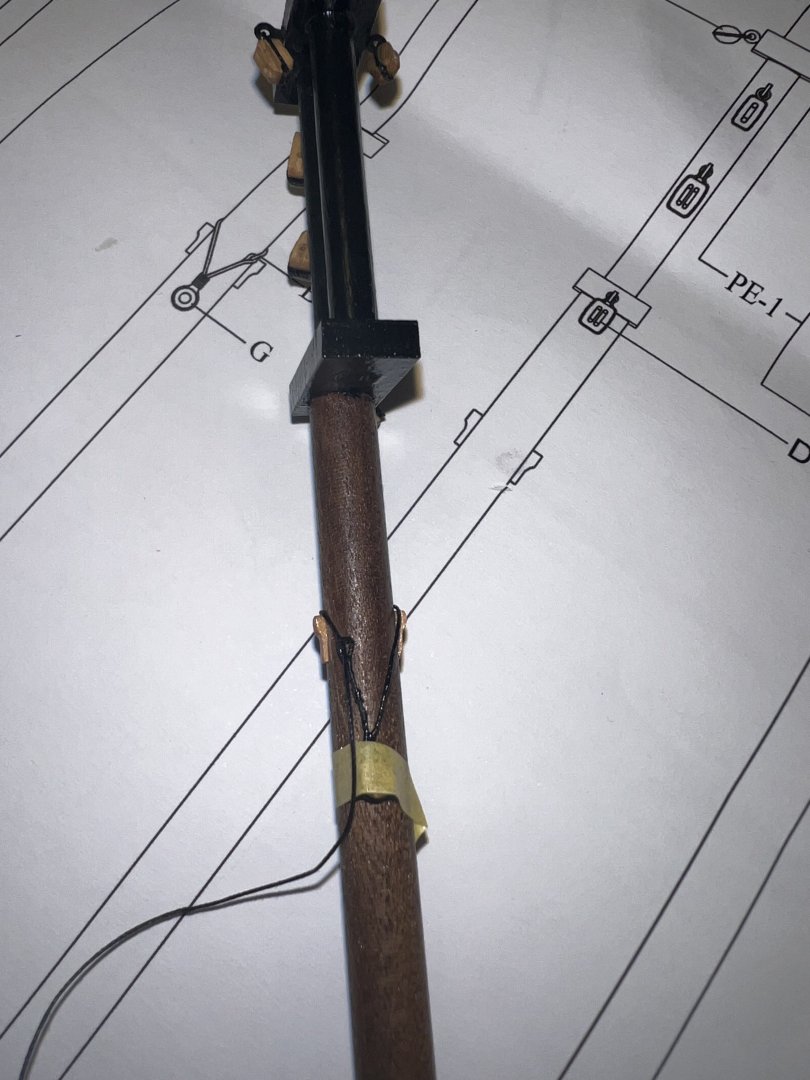
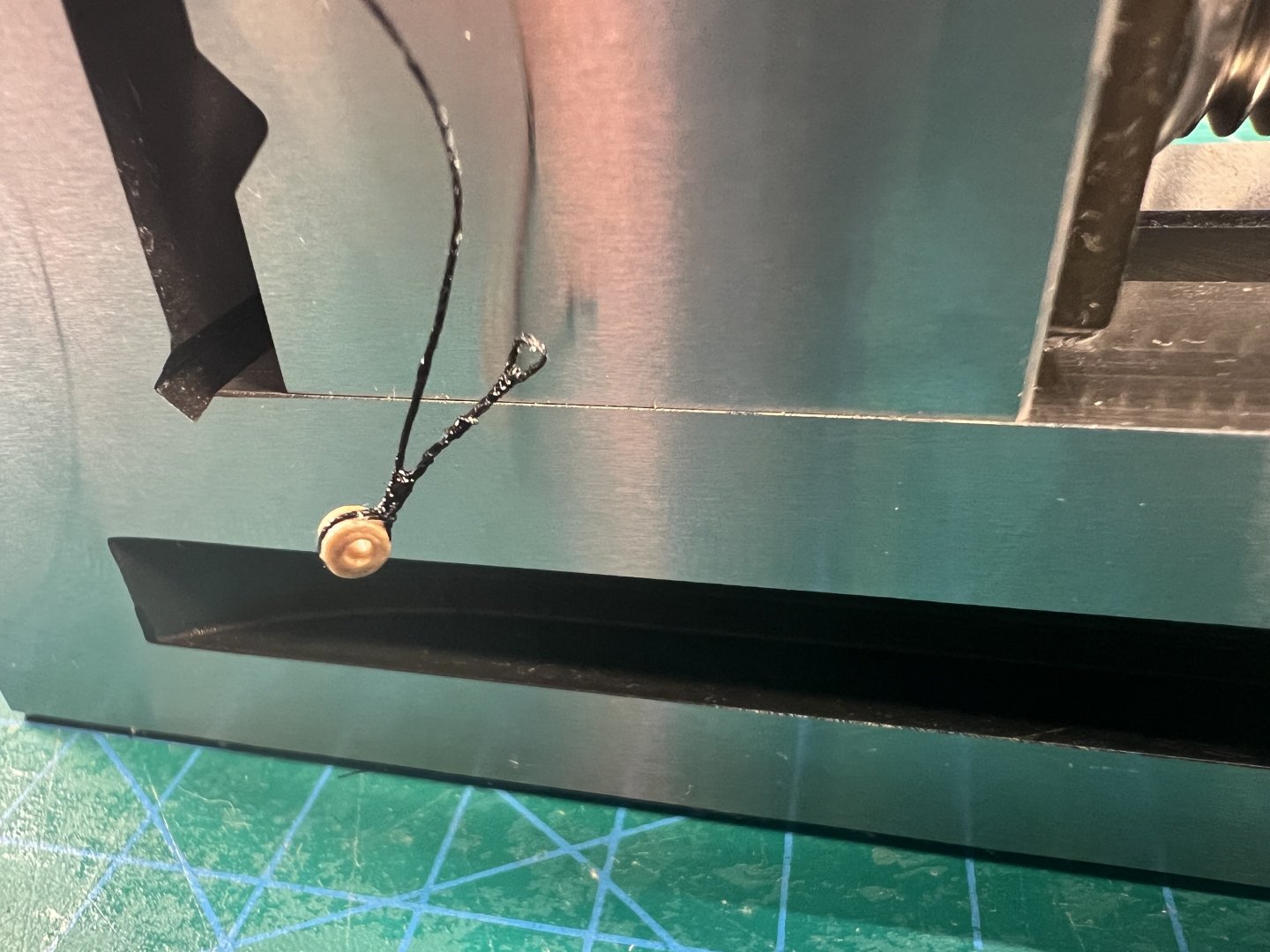
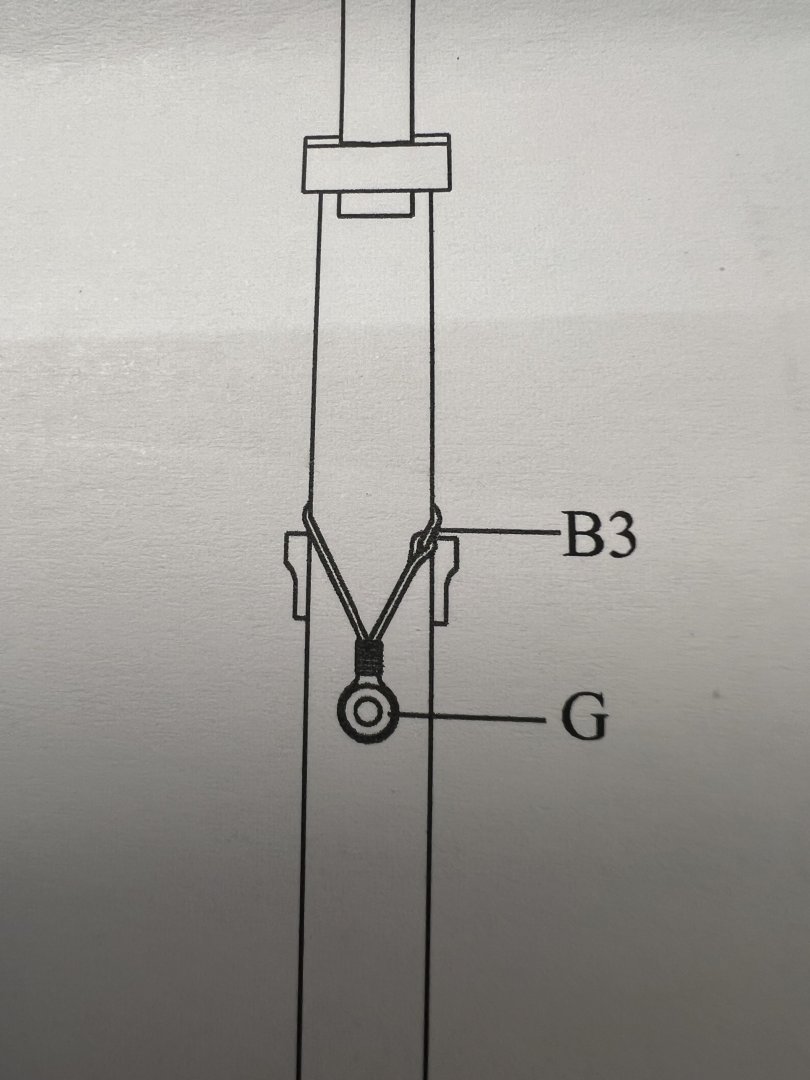
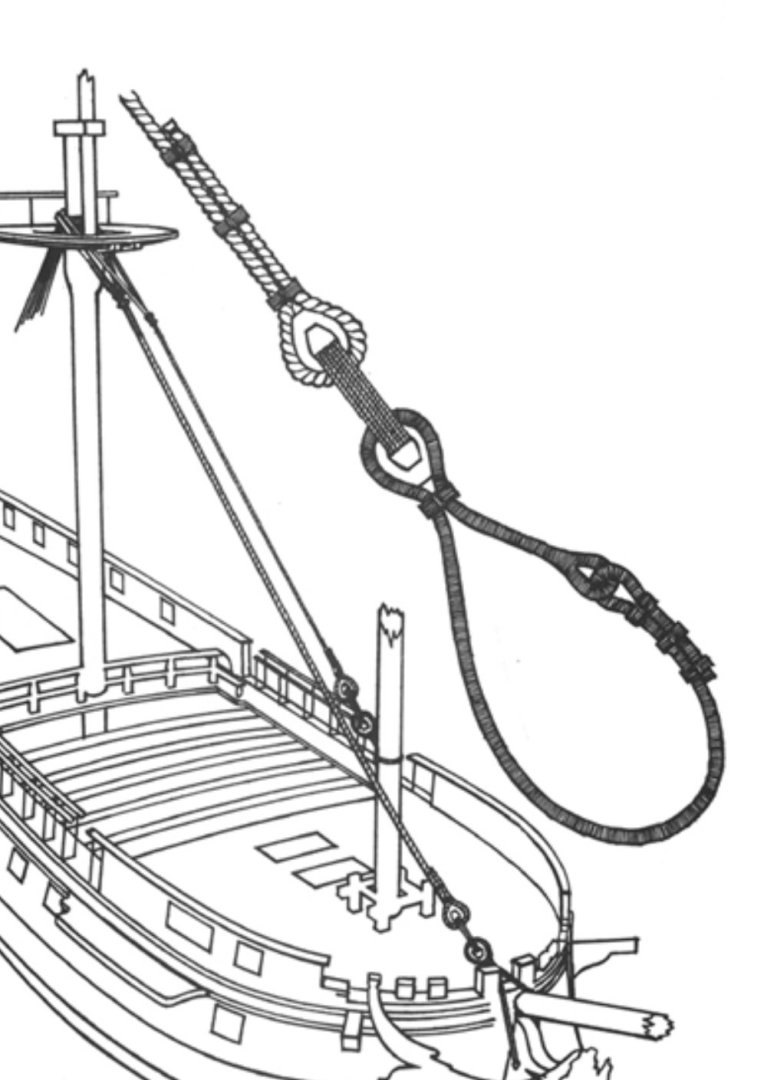
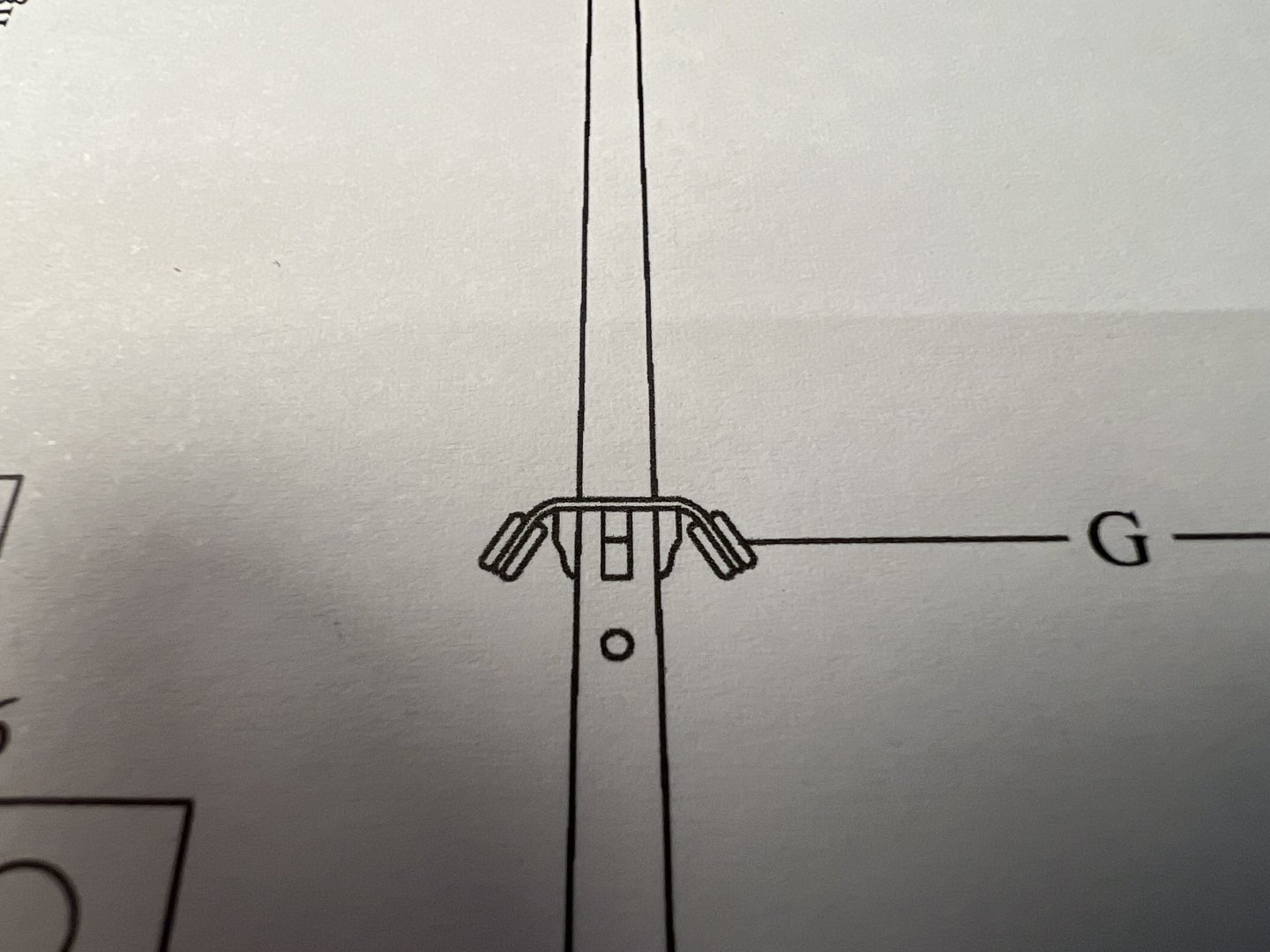
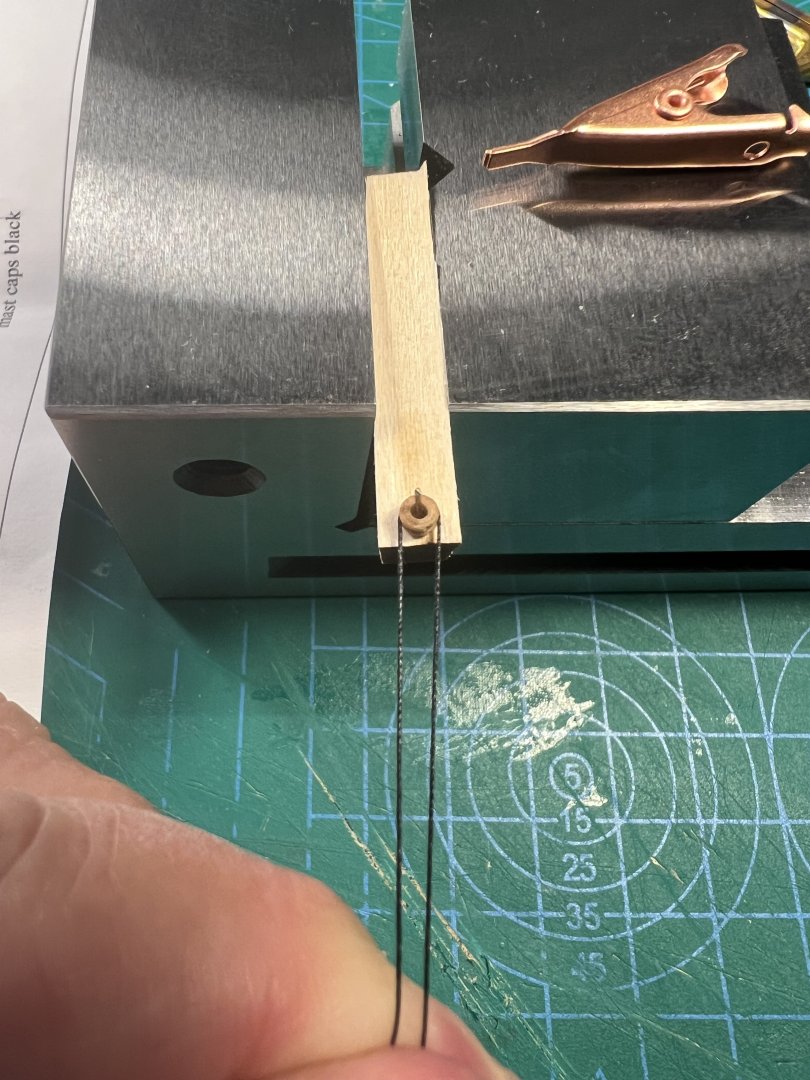
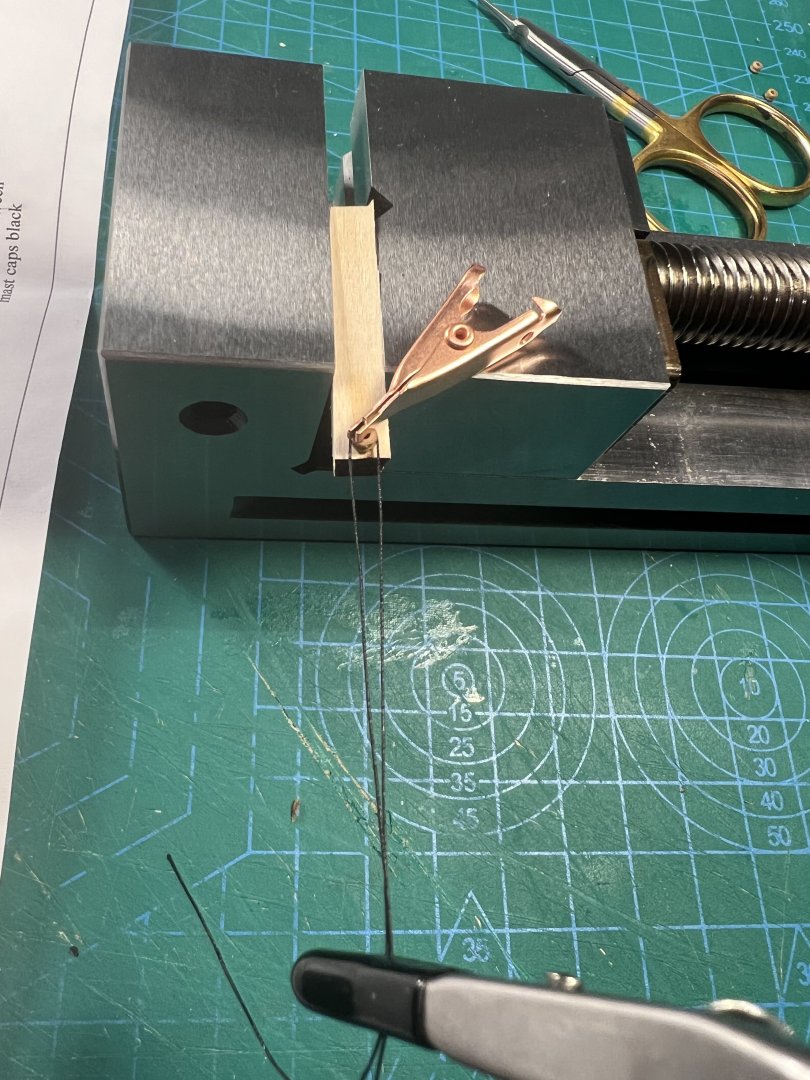
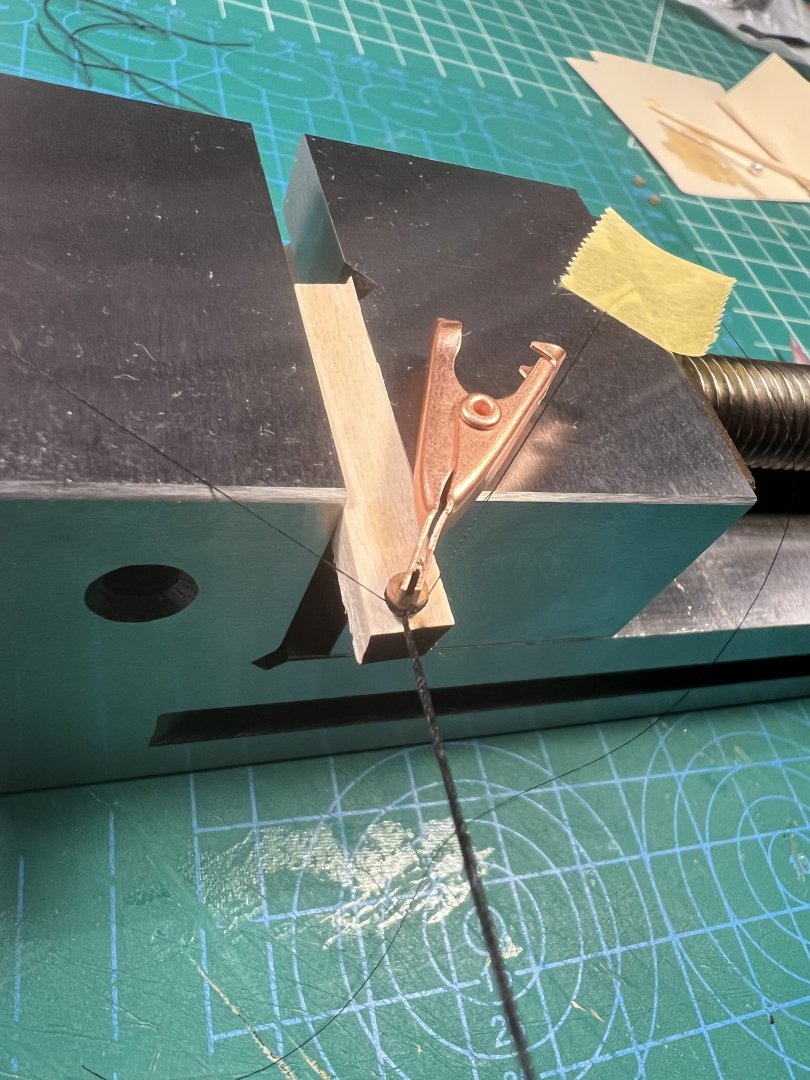
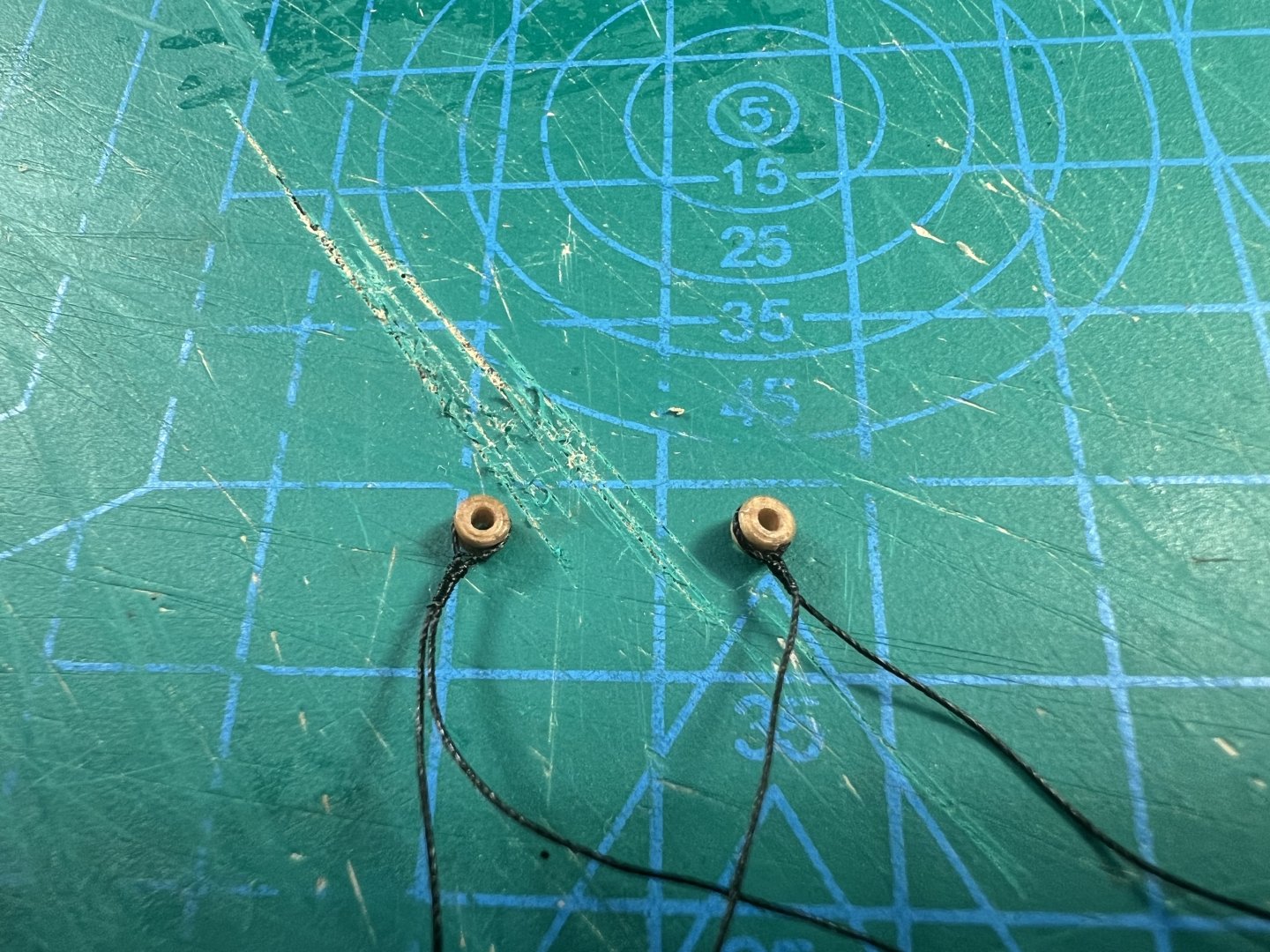
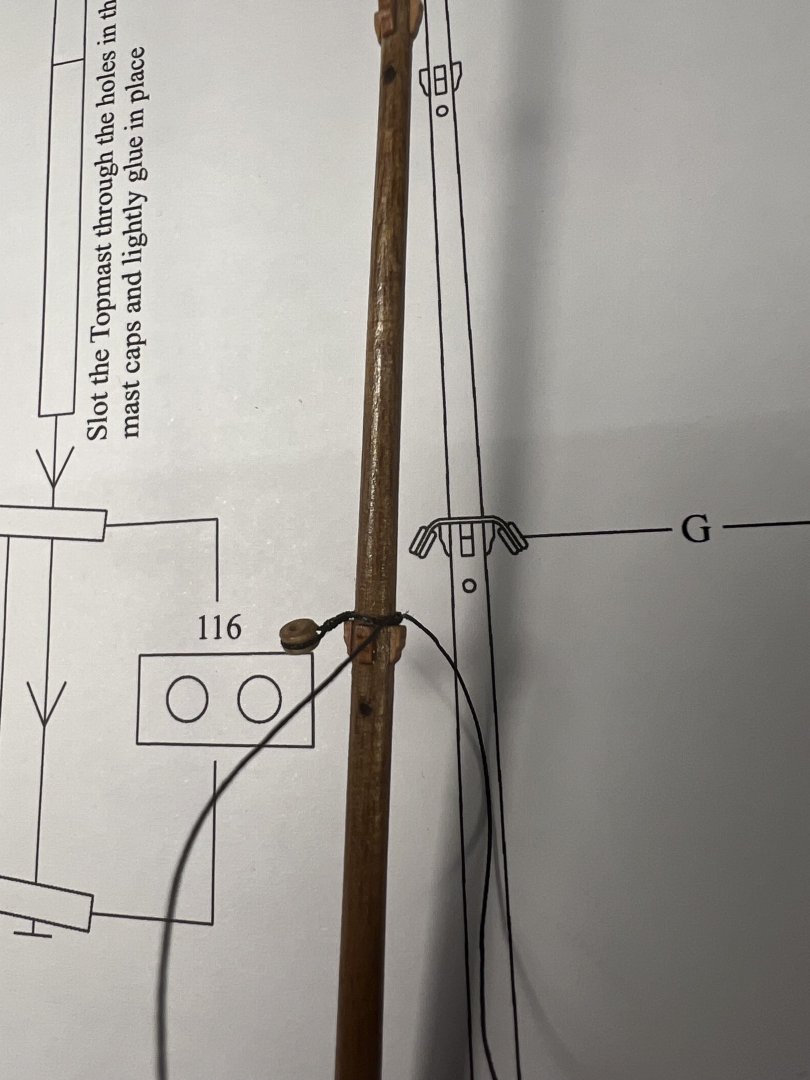
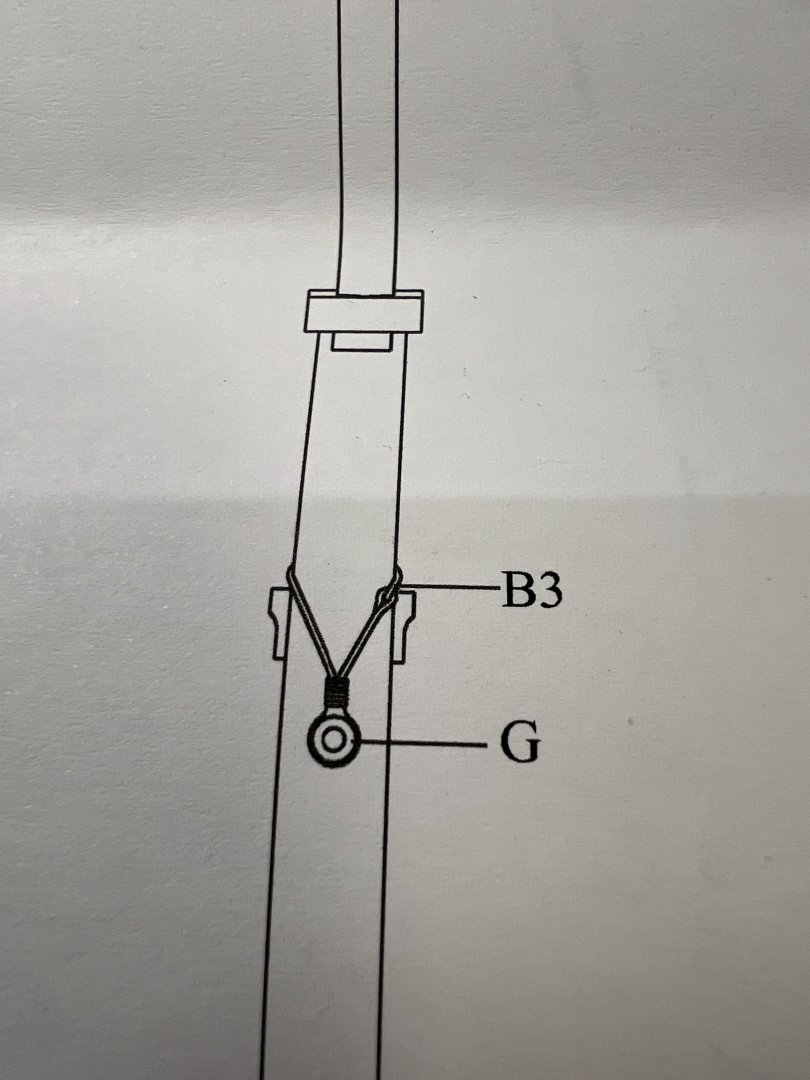
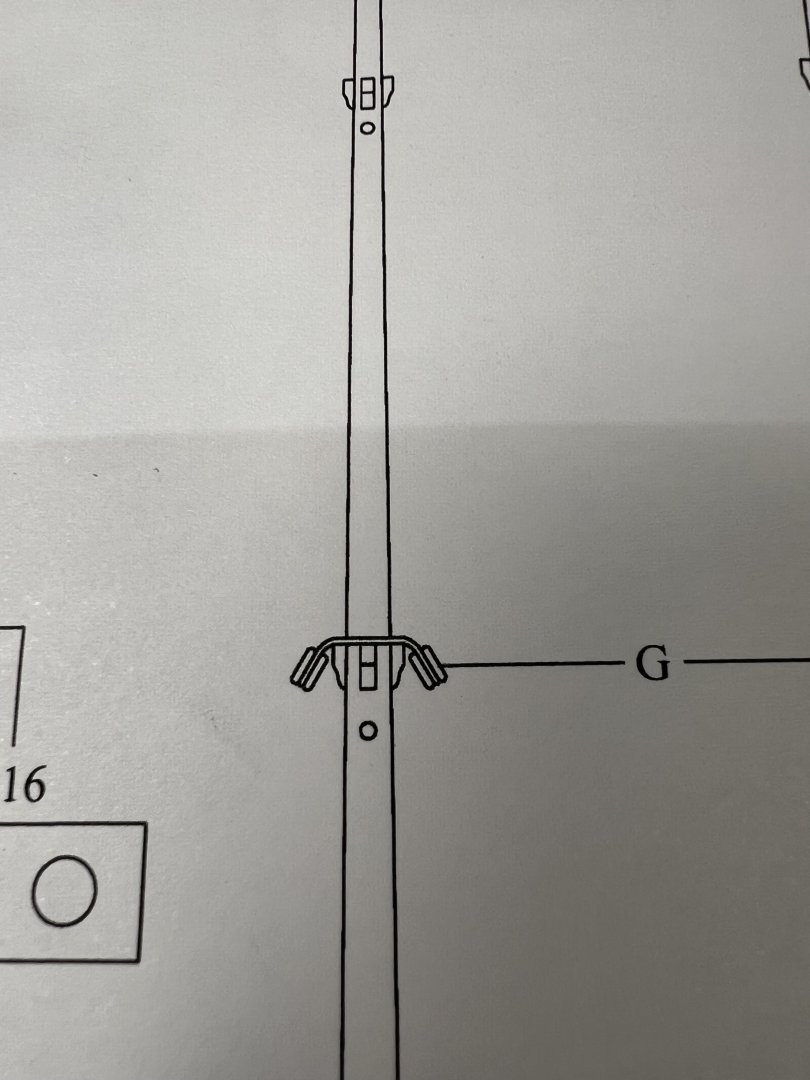
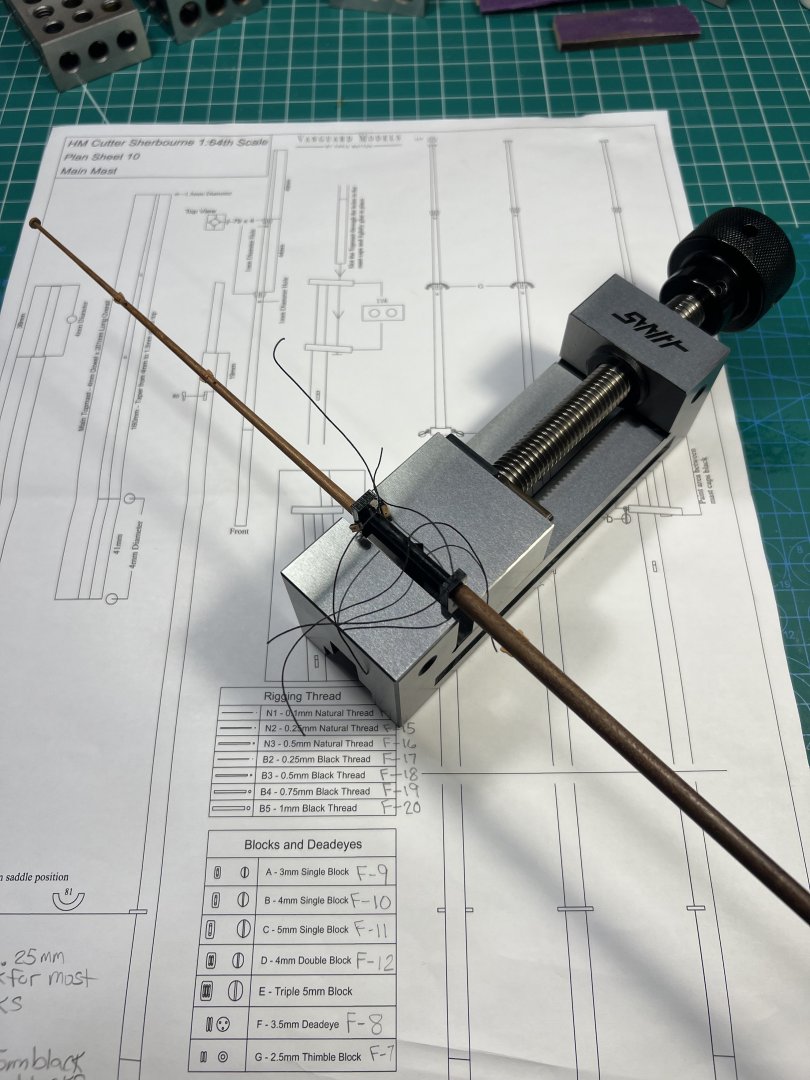















SeaWatch Books Acquired!
in Book, Monograph and Magazine reviews and Downloads. Questions and Discussions for Books and Pubs
Posted
I think I saw you say in a YouTube video interview with David Antscherl that "The Fully Framed Model" series might be appearing again in print (I know they are available electronically). Just wondering if that's happening and when they might appear? I was considering getting a copy of Vol. IV to help with thinking about rigging - even if I have no plans for many many years to consider a build like the Swan.